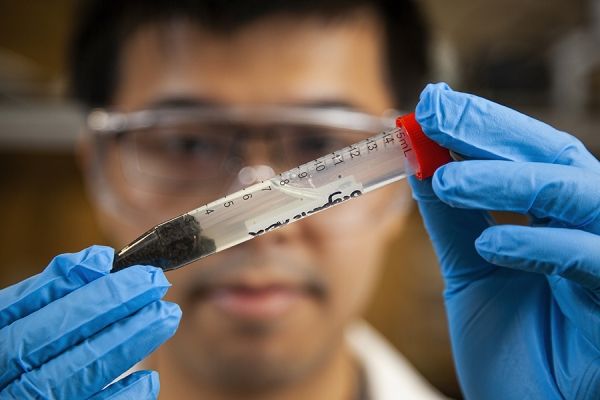The method removed three times the amount of lead from biosolids compared to conventional means and could reduce the total cost of processing by more than 60 percent, making it a possible engineering solution to help produce fertilizer and allow more people to live with clean soil and water. The research is published in the Journal of Cleaner Production .
“Biosolids are a valuable resource, but heavy metals prevent their use,” said Gang Chen, a professor of Civil & Environmental Engineering at the FAMU-FSU College of Engineering.
As the human population of the planet grows and more people move to cities, sewage treatment plants around the world are producing more biosolids. Those byproducts are often disposed of in landfills or incinerators, but there are drawbacks to those solutions, such as high costs or secondary pollution from the treatment process itself.
Another option is to compost the biosolids, using them as an ingredient in fertilizer that finds a second life in agriculture. In the United States, about half of all biosolids are recycled.
Continue reading at Florida State University
Image via Florida State University


